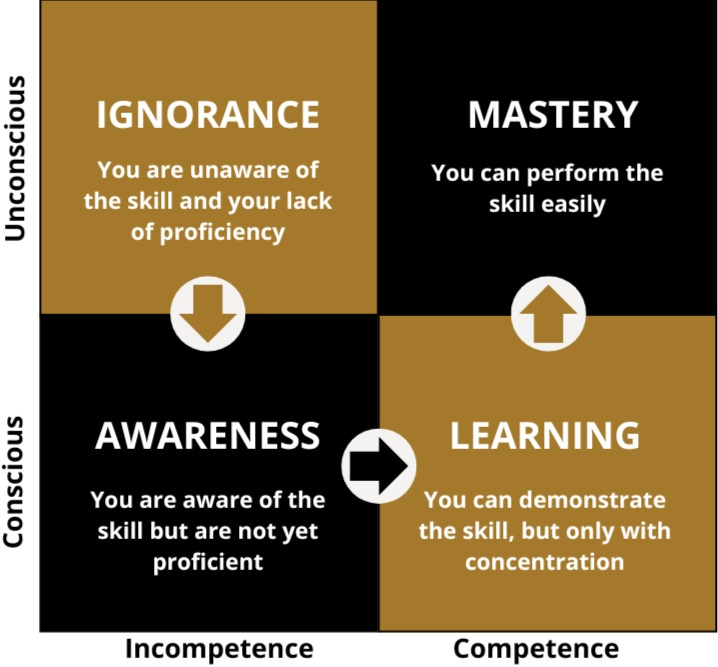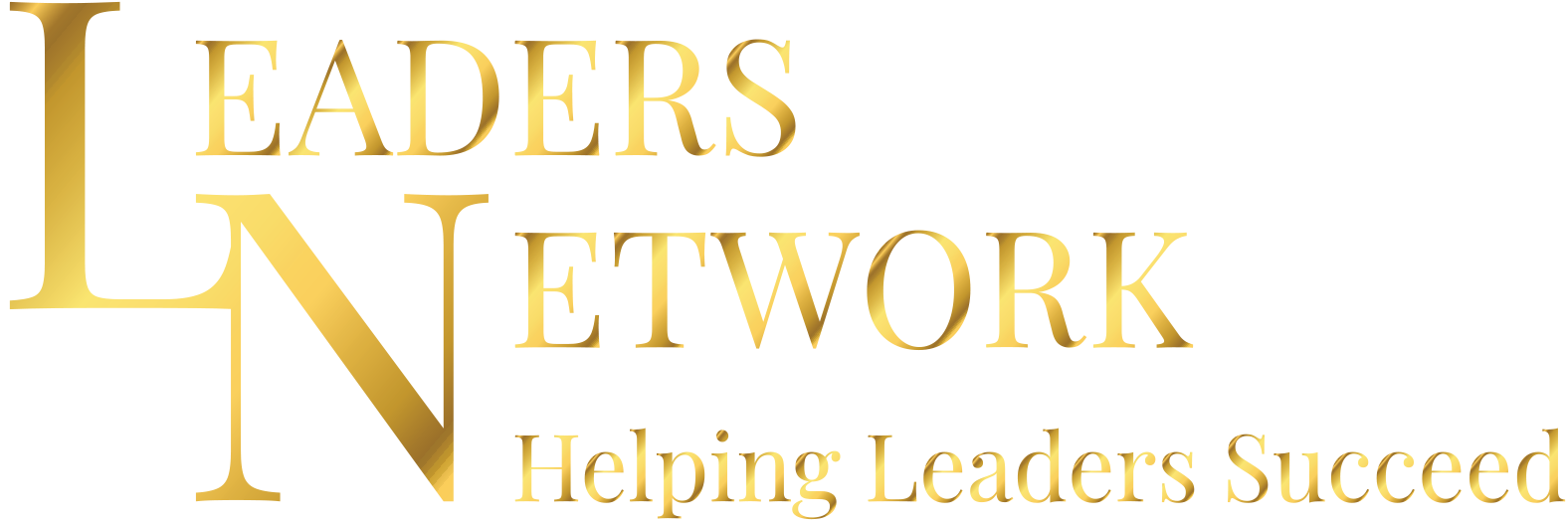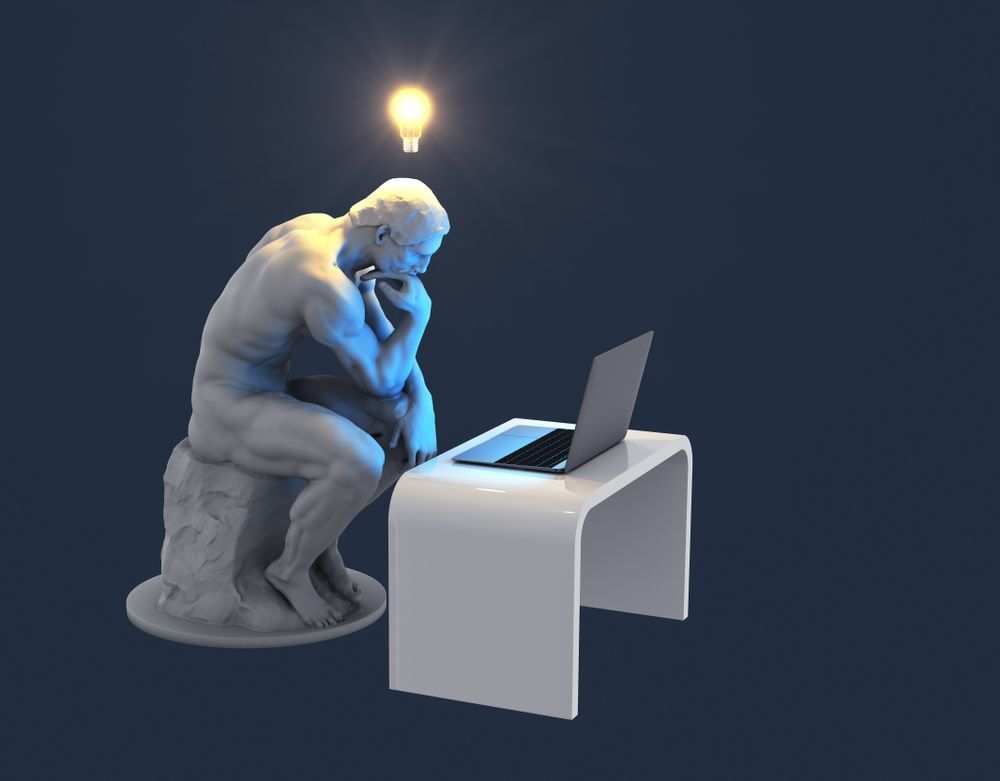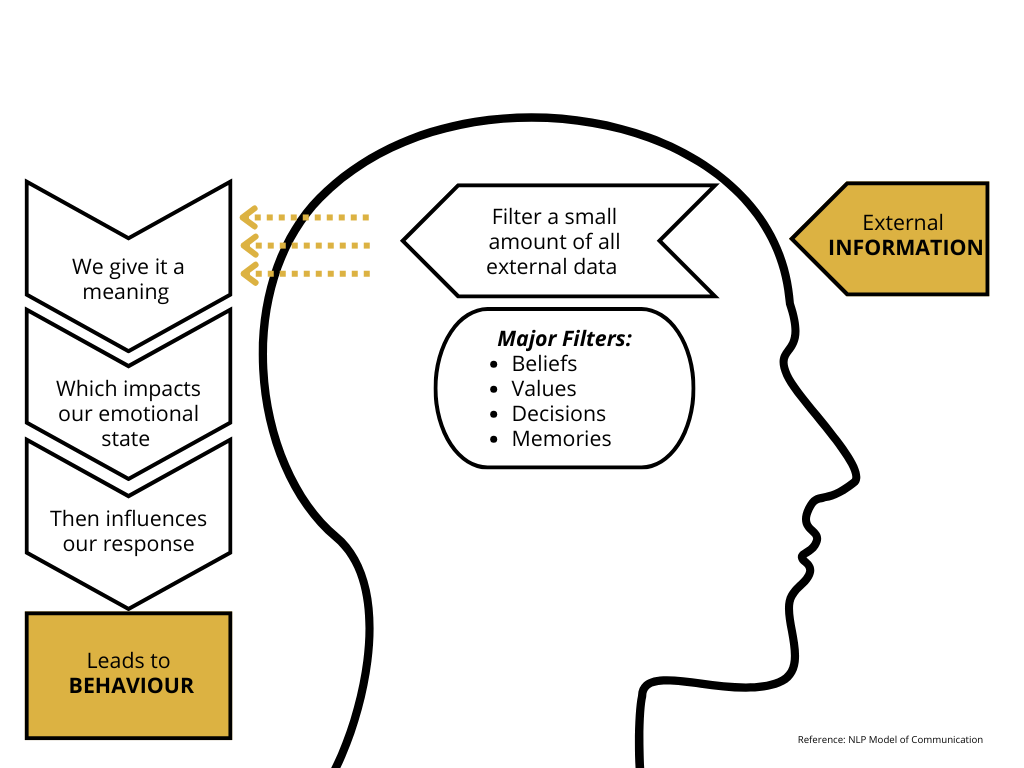Exploring Stages of Learning for Growth

We do not know what we do not know. How often have you heard that line?
I still remember the day just over seven years ago when I found out that there was a lot of stuff about life and business that I did not know, and I did not even know that I did not know it. This was because I had spent nearly 40 years on the corporate treadmill, showing up daily and doing what I knew or could work out to the best of my ability. Doing that certainly allowed me to have a 'successful' career and raise my family, and I thought through all of that, I had learnt a lot, and I had. I used to say I have been to the 'university of life'. Then I went to an actual university and, after five years, had an MBA, and through that, I learned that I could learn anything. Then, I stumbled across the field of study relating to human behaviour and business outside the corporate environment. I had no idea that small business was so big! I became hooked as a lifelong learner. It came to me that the greatest lesson I have learned in life is that I still have a lot to learn.
We all possess the incredible ability to learn anything we set our minds to. This realisation is not just empowering; it's liberating. If a subject or skill is important to you, you can master it. However, it's crucial to remember that while you can do anything, you can't do everything. Learning is the key to growth. We stagnate when we cease to learn, whether or not we're aware of it.
"Unless you try to do something beyond what you have already mastered, you will never grow." Ralph Waldo Emerson
Being in business is about being in a state of constant learning and growing. How to manage the different aspects, such as marketing, sales, clients, and finances. Yes, you may employ someone to do all that for you. However, there will always be aspects that need to be learned because the pace of change, particularly with technology, is so fast these days that there is a need to have an open mind and be aware there is always a new way, new skill, or new process to learn whether you do it yourself or not. We are always learning. As Ralph Waldo Emerson highlighted, "Unless you try to do something beyond what you have already mastered, you will never grow."
Take business planning. I learned a lot about business planning from leading the operations of a large organisation. I was consciously competent, or at least I thought I was. Yet, as I learned more about business in the bigger world, I realised I was consciously incompetent in some areas.
Consider what you aspire to learn. Once we pinpoint areas of life or business we wish to develop or enhance, we can map out the steps needed to achieve this. This journey will likely involve learning or honing skills. Each time we embark on a new learning journey, we pass through the four stages of learning, often without even realising it. This process of self-discovery and growth is a fascinating one.
The four stages of learning highlight how we learn new skills developed from the Conscious Competence Learning Model, a widely recognised learning theory. This model is like the four stages of the competence model ladder developed by Noel Burch in the 1970s; however, there is evidence the model was first used by Martin M. Broadwell in 1969 in an article where he was explaining the practice of ' teaching for learning ' using the competence model. The model highlights two factors that affect our thinking as we learn a new skill: consciousness, which is awareness and skill level, which is competence. It identifies four distinct stages an individual goes through while acquiring a new skill, emphasising the importance of understanding, practice, and conscious effort in developing competence.
Let's start with the first stage of learning, which is Ignorance. At this stage, we are unaware that we lack a specific skill. We are unconsciously incompetent. It's like not knowing what we don't know. For instance, you might not know that a solid business plan starts with defining your big picture, and you might not even know what that means. This stage's duration depends on the skill's importance or the strength of your motivation to learn.
The second stage is Awareness . We become aware that we do not know something or lack skill and understanding in a particular area. For instance, after learning that a business plan starts with defining your big picture, you find it involves clarity on your purpose, vision and values. You have never considered this, maybe even thought it was 'fluffy stuff'. You are now consciously incompetent because you now know that a great business plan starts with defining your big picture and want to learn how to do this. Taking time, having a go, making mistakes, and getting feedback can be integral to the learning process at this stage.
Then, we progress to the Learning stage, where we understand or know how to do something. All learning happens when we put into practice what we have learned. We have developed the necessary skills or knowledge at this sta ge but must still consciously focus on applying them. Continuing with defining your big picture example, this is about bringing to life the vision and values you have identified in the awareness stage in your business or life every day. This skill and level of knowledge take time and effort, and when you do this, you are consciously competent.
Lastly, with continued time and practice, we can achieve Mastery (if this is what we choose to do) in which we have practised the skill or applied the knowledge so that it has become ‘second nature’ and is used or performed with little conscious thought. At this stage, you are unconsciously competent, as the knowledge and skill you have 'mastered' is evident in how you show up daily, making decisions aligned with your values and taking you towards your vision for the future.

When we understand these four learning stages, we can focus more on being a lifelong learner, realising that there is always something to learn that will enhance your personal growth. Here are a few tips for each stage:
Tip #1
At the Ignorance stage, be open to feedback and self-reflection. Look for areas, skills, or knowledge you want to improve, be willing to search for how you can do this and ask for help when necessary. Often, reading a book will get you started.
Tip #2
At the awareness stage, set achievable goals. The SMART goal framework is great for this. Create habits around how you will achieve your goals and break the desired behaviour or skill down into more minor activities that you can focus on to achieve results. Celebrate small victories as you go, be patient and focus on progress, not perfection.
Tip #3
There is only one way to do it when it comes to learning: put the knowledge into action. Act and practice consistently and with discipline. Be clear on what you want most versus what is comfortable right now. Apply the skill or behaviour differently and seek feedback to continue to improve and learn.
Tip #4
To master anything, you need to be consistent. Apply the principles of how you want to be and look for ways and opportunities to challenge yourself to improve. Be willing to take risks, try new things and continually stretch your comfort zone from being comfortable through fear into the learning and growth stage. You will thank yourself for it in the future.
Understanding the four stages of learning will help with personal growth and development. By embracing and integrating these stages into our lives, we can enhance our ability to learn effectively and instigate lasting changes in our behaviours and habits. Whether we aim to acquire new skills, change behaviours, break free from poor habits, or evolve as individuals, the four stages of learning serve as a model to help us accomplish our goals and maximise our potential.
If you want support with your business or personal growth and learning, book a complimentary strategy session with a coach at Leaders Network.





